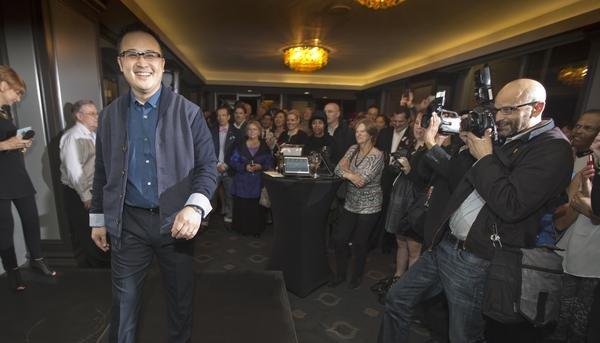I’m an avid car enthusiast and driving is one of the simple pleasures I truly enjoy. Driving out in the open road relaxes me and gives me a chance to unwind. It’s my form of meditation. Ironically, I was so relaxed the other night while driving that I almost got into an accident. One of the hazards of driving is that sometimes you don’t see everything on the road, especially when it’s in your blind spot.
Similar to driving, many of us cruise through our careers thinking everything is okay with no hazards in front of us. We unknowingly glide through each day as if we were on cruise control. Unfortunately, what can derail your career the most isn’t something that you can necessarily see. It’s often times something that you may be completely unaware of, something hidden in your “blind spot”.
We’re all human beings. So by definition, that means none of us are perfect. We all have weaknesses and things that we need to work on. However, the weaknesses that aren’t readily apparent can be truly detrimental to your success. It’s like a blind spot while driving. If you’re unaware there’s another car nearby, it’s a strong possibility that you could crash right into it. Don’t let that happen to your career.
Being in a leadership role for all these years, I’ve witnessed really talented people crash and burn because they didn’t pay attention to their “blind spot”. One of the most difficult personnel decisions I made recently revolved around an individual who just couldn’t or maybe wouldn’t make the necessary changes to improve his weaknesses. We had worked together for a long time and for some reason, he always seemed surprised whenever I told him his areas of weakness. For a while, his weaknesses could be covered up, but as we grew and evolved as a company, his weaknesses became more glaring and began to compromise the health of our organization. I eventually had no choice but to let him go.
It’s important to identify what your hidden weaknesses are. It sounds easy, but human nature usually dictates our actions. No one really likes to hear what we aren’t good at or what we need to improve on. It’s like taking medicine. But just like medicine when you’re ill, you need it. It’s important that you take any constructive feedback seriously. When your boss points out areas for you to work on, you should put a plan together to improve those areas. Don’t let it go in one ear and out the other. The odds are if he/she notices these weaknesses, so do your peers and others that you conduct business with.
In addition to your manager’s feedback, I highly recommend asking your peers that you work closest with to give you constructive criticism on areas they feel you could improve on. It doesn’t have to be an awkward process or anything formal. It could be a casual conversation over coffee or lunch. The important thing you have to understand is that you need help from others to get this information. It’s quite difficult to get out of our own way when trying to look at things from other people’s perspectives. That’s what creates the “blind spot”.
A wise man once said, “The truth hurts!” Nevertheless, it’s better to know and understand your weak points then turn a blind eye. It just might save your career.





